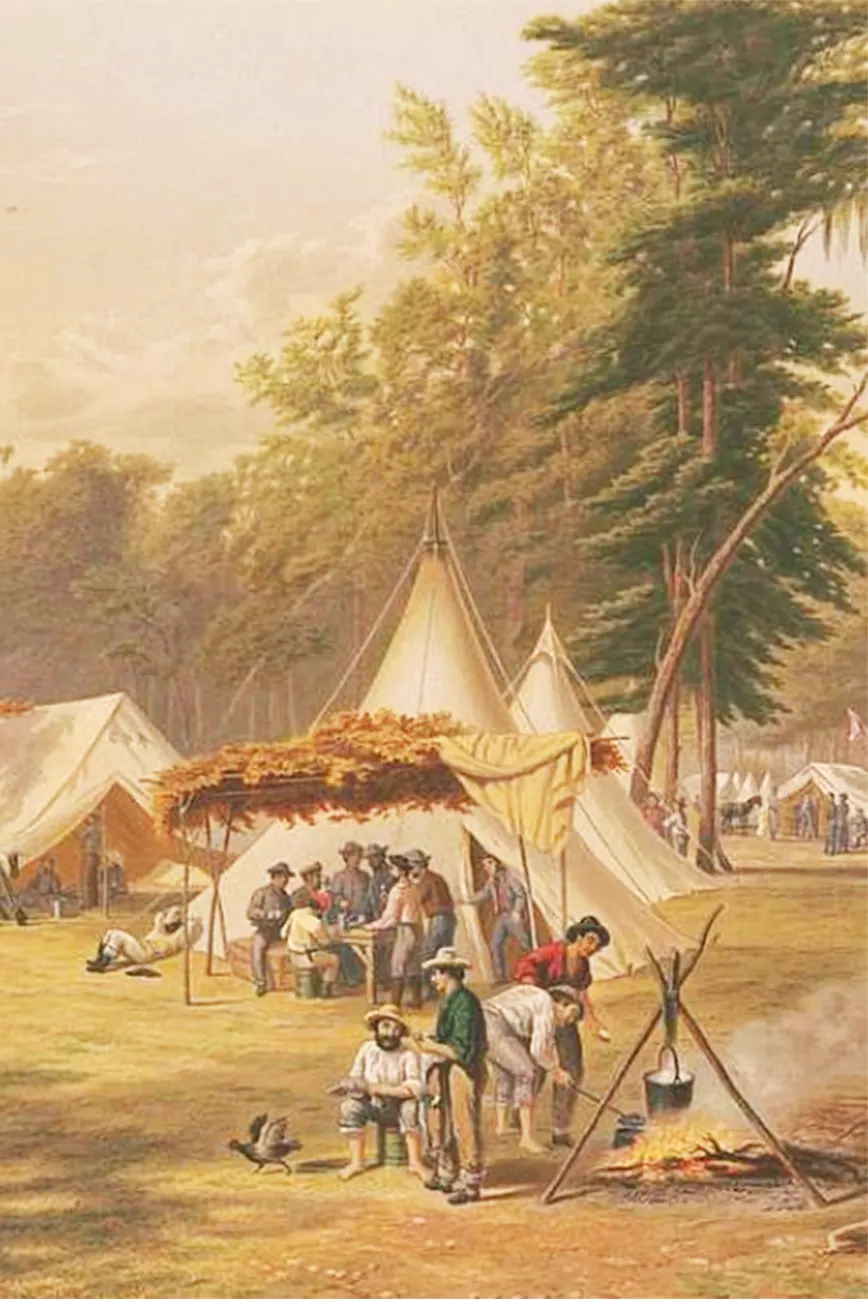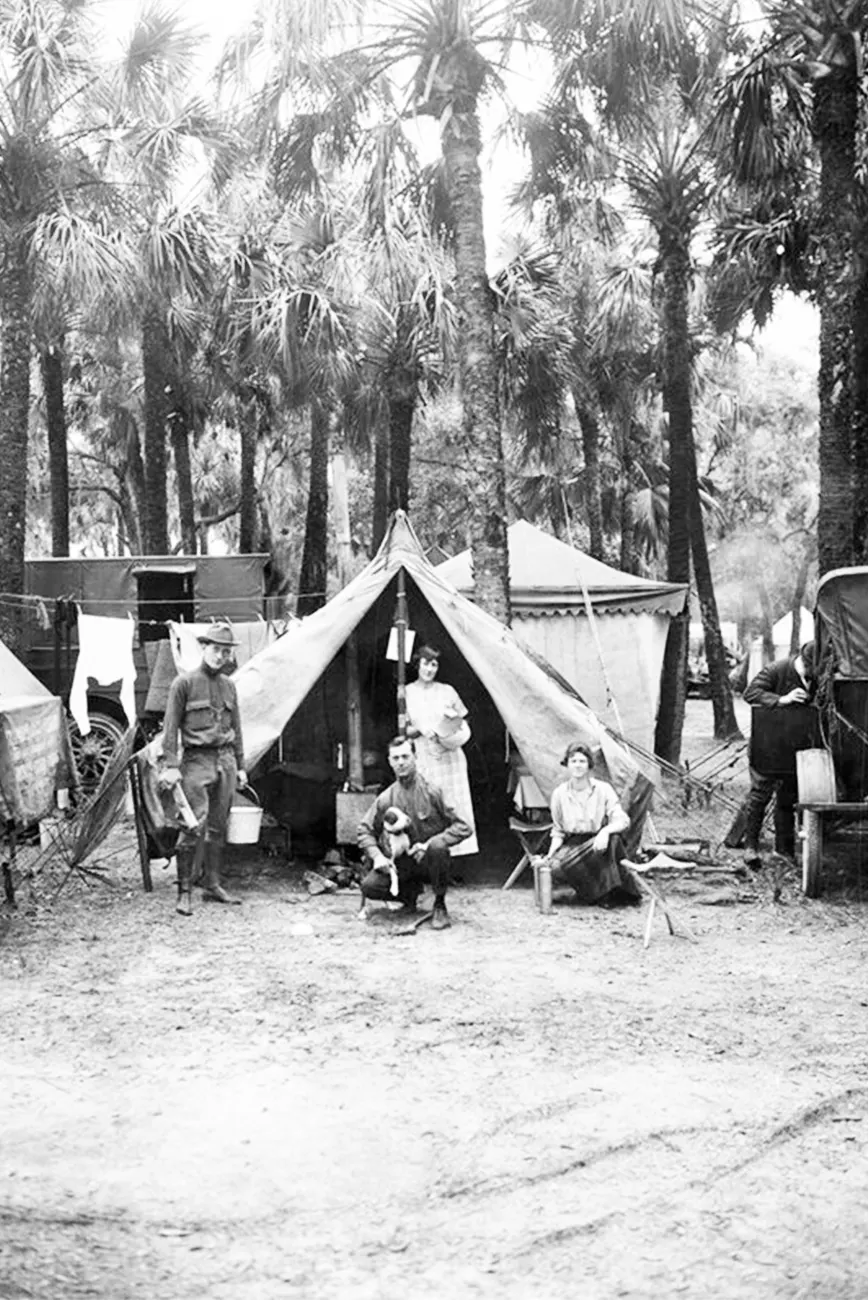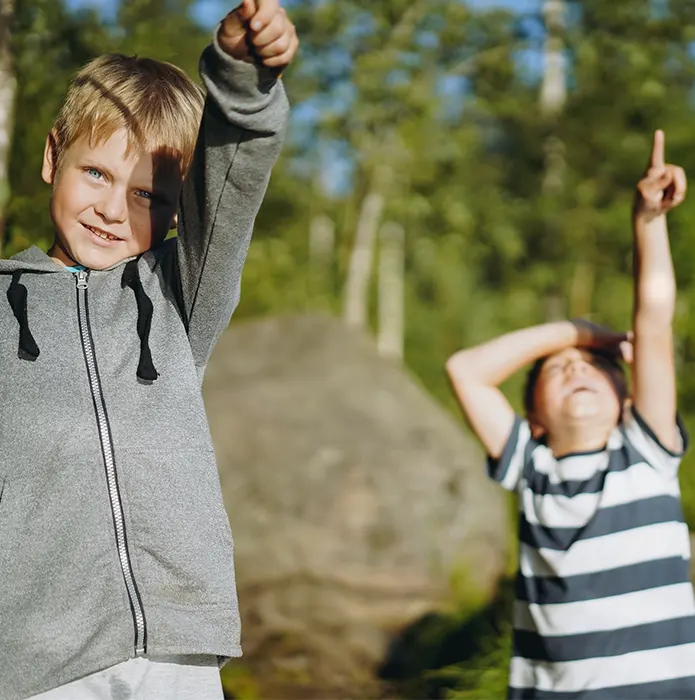Who Invented Camping? A Historical Journey into the Origins of Outdoor Recreation


Introduction
Camping, a beloved outdoor activity that brings people closer to nature and fosters unforgettable experiences, has a history that spans back thousands of years. We will delve into the historical journey of camping and explore the pioneers, and cultures that contributed to the development of this pastime. Join us as we unravel the intriguing question: Who invented camping?
Early Roots of Camping: Nomadic Tribes and Sheltering in Nature
The concept of camping can be traced back to early human history when our ancestors were nomadic tribes. These ancient societies had to move from one place to another in search of food and water. These temporary shelters, made from materials like animal hides, branches, and leaves, laid the foundation for the early notion of camping as a means of survival.
Chinese and Greek Influences: The Birth of Traveling for Leisure
Beyond the nomadic tribes, evidence of early camping for recreational purposes can be found in ancient Chinese and Greek cultures. The Chinese had a long-standing tradition of enjoying nature through recreational activities, including hunting trips and excursions into the countryside. In ancient Greece, individuals sought retreats in the wilderness to connect with the natural world, meditate, and philosophize.
The Roman Influence: Furnished Camps for the Wealthy
The Romans, known for their engineering and architectural prowess, also played a role in the evolution of camping. For the wealthy elite, they constructed lavish villas in the countryside, with all the amenities required for comfortable outdoor living. These furnished camps provided the Roman upper class with a taste of the wilderness. The enjoyment of luxury and refinement of their urban lifestyles.
Camping in the Age of Exploration: Adventurers and Explorers
The Age of Exploration in the 15th and 16th centuries saw intrepid adventurers setting sail for distant lands, leading to the discovery of new continents and uncharted territories. These explorers often camped during their expeditions. Facing the challenges of the unknown while immersed in the beauty of untamed landscapes. From Christopher Columbus to Captain James Cook, camping became an essential part of their journey.
Thomas Hiram Holding: The Father of Modern Camping
While camping has a rich historical background, the credit for popularizing camping as a leisure activity in the modern world is often attributed to Thomas Hiram Holding. Holding, an English tailor, is regarded as the “Father of Modern Camping” due to his influential book, “The Camper’s Handbook,” published in 1908. The book detailed Holding’s camping adventures and practical tips for camping enthusiasts.
The Camping Movement in the 20th Century: Campgrounds and Outdoor Education
The early 20th century witnessed the emergence of organized camping and the establishment of campgrounds. Organizations like the Boy Scouts and Girl Scouts promoted camping as a way to teach valuable life skills. leadership and environmental stewardship. Campgrounds provided accessible spaces for families and individuals to experience the wonders of camping without the challenges of the wild.
Camping in Popular Culture: Influence on Literature and Film
Camping’s popularity in the 20th and 21st centuries extended beyond outdoor enthusiasts and became ingrained in popular culture. Iconic books like Jack London’s “Call of the Wild” and Henry David Thoreau’s “Walden” celebrated the beauty of nature and the simplicity of camping. Additionally, camping-themed movies and television shows further fueled the public’s fascination with outdoor adventures.
Technological Advancements: Camping in the Digital Age
As the world progressed into the digital age, camping adapted to modern technologies. Lightweight and durable camping equipment, GPS devices, solar-powered gadgets, and portable stoves revolutionized the camping experience. Moreover, the internet and social media platforms provided campers with access to valuable resources. Camping communities had the ability to share their experiences with a global audience.
Spotlight
While the origins of camping can be traced back to early human history, it was the combination of cultural influences and explorations. The vision of individuals like Thomas Hiram Holding that shaped camping into the cherished recreational activity we know today. As we venture further into the future, camping will undoubtedly evolve. Its core essence of connecting with nature and creating lasting memories will endure for generations to come.
Feeling Ready to pitch a tent?
Check out our Instagram Account!
Who Invented Camping? A Historical Journey into the Origins of Outdoor Recreation? #campinghistory #camporigins #campingwonders #mysteriesofcamping #partofhistory #campinghttps://t.co/tt9Y6C4KMC
— Pro Tackle Australia (@ProtackleAust) July 29, 2023




